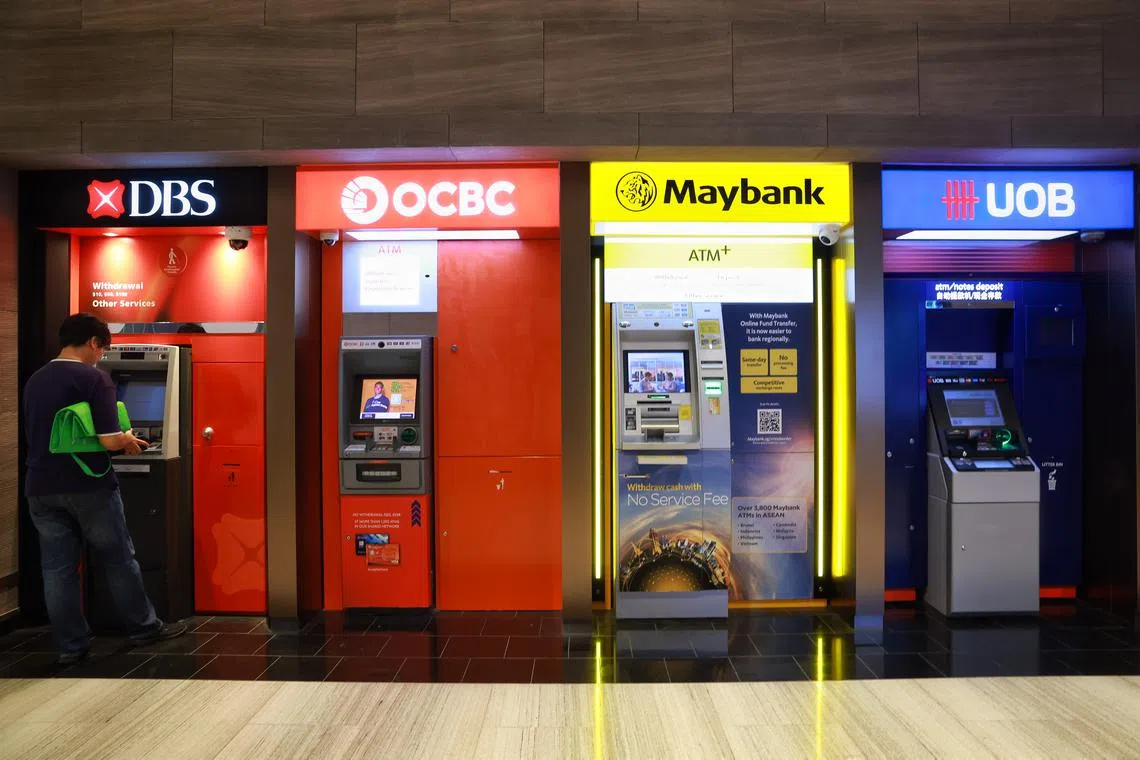Banks are poised to get a boost from Johor-Singapore Special Economic Zone: Observers
Sign up now: Get ST's newsletters delivered to your inbox

The zone will help sustain the momentum for banks by providing further incentives for the potential flow of investment and developments, analysts said.
PHOTO: ST FILE
SINGAPORE – Banks in Singapore and Malaysia will reap significant benefits from the new Johor-Singapore Special Economic Zone (JS-SEZ), noted Maybank executive Thilan Wickramasinghe.
Mr Wickramasinghe, the bank’s head of research and regional financials, singled out OCBC Bank and UOB in particular as key beneficiaries “given their well-entrenched Malaysian and Asean footprint”.
He noted on Jan 7 that Singapore banks have been integrating their wholesale and retail banking operations on a regional scale over the past five years or so.
The JS-SEZ agreement signed on Jan 6
Malaysia will set up an infrastructure development fund, while Singapore will design funding support to help local companies expand into the JS-SEZ.
The economic zone could also offer opportunities for businesses in Singapore to establish complementary operations in Johor, all of which will generate more business for banks, Mr Wickramasinghe said.
They stand to benefit from higher credit demand and non-interest income in the form of advisory, transaction banking and cash management from these companies, he added.
Mr Tan Teck Long, OCBC’s head of global wholesale banking, noted that the bank has already received many inquiries from businesses in the region to set up operations in Johor and supported about 260 companies in doing so in 2024, even before the signing of the JS-SEZ agreement.
The 260 companies are mostly from the services, construction, manufacturing and wholesale and retail trade sectors.
“We anticipate this number to increase by 20 per cent in 2025,” Mr Tan said on Jan 7.
He also noted that OCBC has 25 bankers on both sides of the Causeway to advise clients on starting operations and help them connect with local business partners.
Maybank president and group chief executive Khairussaleh Ramli on Jan 7 said robust growth in cross-border payments can be anticipated as the JS-SEZ further eases movement of people and goods.
The bank, which has operations in Malaysia and Singapore, said it had already seen such transactions increase by 60 per cent in the 12 months to the end of 2024.
HSBC has also named banks in both countries as key beneficiaries of the JS-SEZ.
Analysts Yun Liu, Joy Wang and Madhurima Nag noted on Jan 8 that the zone will help sustain the momentum for banks by providing further incentives for the potential flow of investment and developments, especially in the Johor region.
“We see this as a continuous catalyst for the Malaysian equity markets with key sectors such as banks, construction, healthcare, real estate and utilities being the key beneficiaries,” they added.
Sheila Chiang is a business correspondent at The Straits Times.


